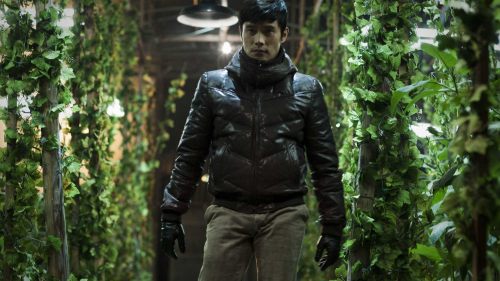SNOWPIERCER’S Lack Of Subtlety Is A Key Strength
Parasite is almost here. Get your tickets now!
Bong Joon-ho's 2013 film Snowpiercer, is notable for a number of things, including being the filmmaker's English language debut. The change in language, however, didn't cause the South Korean filmmaker to lose a step, as his themes on class struggles were just as prevalent as ever. In fact, Snowpiercer is absolutely the opposite of subtle about this, as the ideas it tries to communicate are glaringly obvious in both the dialog and the visuals. While this would be a detriment in most features, it's a benefit in Snowpiercer, as it makes the themes impossible to miss, and more importantly, impossible to misinterpret. In being just shy of overt, the metaphor in the movie forces the viewer to engage with what the movie is trying to say.
There are clear villains and heroes in Snowpiercer. There are the haves and there are the have-nots. There is no ambiguity about this, nor should there be. Portraying the have-nots in any other light would be doing them a disservice, as the introduction of ambiguity would open up the idea that the have-nots don't deserve better circumstances, and closing down that possible line of thought only benefits the larger story. The poor are forced to eat bugs, or else they'd have to resort to eating each other. They jam themselves in cramped spaces while the rich enjoy aquariums and culinary delicacies. Through all this, the poor are harshly punished for trying to do anything to improve their standing, told that they should know their place and “be a shoe”. The train itself runs on child labor, posited as a necessity to keep the system going. The parallels to class structure in modern society could not be starker; the poor are left to fight for scraps while the rich take more resources than they need, and the exploitation of the poor from a young age is what keeps the whole endeavor going.
Watching a child get snatched away to work in the engine room means nobody can possibly miss what Bong Joon-ho is trying to say. This forces audiences to confront the movie's ideas head-on, and challenge any notions of fairness in the class structure that they may have. Bong Joon-ho leaves no room to just watch the movie while remaining disengaged with its deeper themes, or to come away without an opinion on what's displayed. Any ambiguity or nuance in the metaphor would have opened up the avenue for people to engage with the movie in a way that was different from what the filmmaker intended, and by making the parallels to our world so blunt, he erases any possibility of that, which is highly beneficial when examining the class structure unfairness that this movie presents. There is a reason Bong Joon-ho is putting forth the ideas that he is, and one must engage critically with it; that's the price of admission for watching Snowpiercer.
In the end, the lack of subtlety works as a very effective choice for Snowpiercer. While it may make some obvious aspects of the story feel too spelled out it also helps drive home other aspects that much harder, like the propaganda masked as classroom teachings. The fact that it forces viewers to reckon with what Bong Joon-ho portrays onscreen only helps to elevate the movie beyond a simple metaphor for the current class system and into an excellent illustration that cannot, under any circumstances, be described as neutral or holding back. And in this lies a major strength of Snowpiercer; by opting to forego subtlety, Bong Joon-ho chooses to make a statement, and Snowpiercer is all the better as a film due to this choice.



